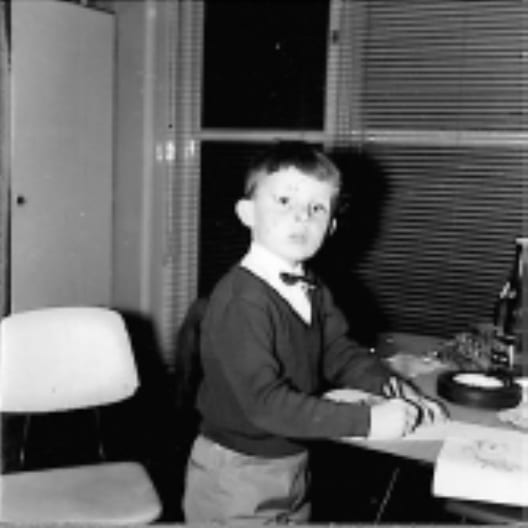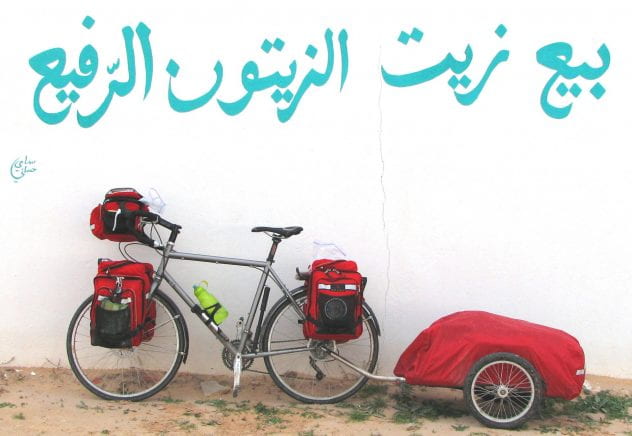By Roel Krabbendam (Architect, advocate and author focused on re-imagining the future of school)
Previous post on imaginED: Re-imagining School

I’m an architect, advocate and author making a living (and finding satisfaction and meaning) with my imagination. As my recent experience demonstrates however, imagination is not to be taken for granted: it requires vigilance and care. “Deferred maintenance” comes at a cost.
“I’ve got nothing”. I caught myself saying that a few months ago.
Pathetically.
On my mind: I was supposed to put together an interview presentation, present my wife and daughter with house renovation options, complete another long‐overdue essay for my book, prod my team to think more sharply about a school renovation project we’d started, and address this nagging whisper of existential crisis that had started to erode my sense of well‐being. I had no ideas around any of these concerns.
They just weighed on me.
This is how I recaptured my creativity, (and still managed to blow a thing or two):
- Fatigue: I felt tired all the time. In response, I started going to bed at 9PM and read until I fell asleep instead of watching TV. I started sleeping an extra 90 minutes a night. Simultaneously, I started bicycling to work twice a week, with the goal of 3 times per week. The time commitment was daunting: 2 1⁄2 hours per day of bicycling, or an extra 1‐1 1⁄2 hours over my usual automotive commute. So, for a month, I traded almost all of my week‐day free time in for sleep and exercise. Less time, in other words, to address the concerns I needed to grapple with. Would I do this forever? Unlikely. Was it worth it for now? I’m feeling great.
- Passivity: The bicycling made me feel like I was taking charge. That was infectious, and led to a more proactive stance across all areas of my life. Lunch time became thinking time instead of down‐time. I can’t point to a single good idea that came out of lunch, but I felt like I was in action. Flipping that switch was absolutely critical.

The commuting bike, on its way across the Sahara Desert some years ago - Effectiveness: This was hit or miss. To solve the interview presentation in time, I ended up taking a week off from biking and working a 60 hour week, with an all‐nighter for good measure as much to keep my team motivated as to organize and prepare the presentation. This brute‐force method led to many less than super‐productive hours (4am: “I’m too old for this crap”…), but it got the job done to my satisfaction without abandoning team members.
- Ego: The house renovation strategy has been devilling us forever. My wife and daughter each had my ear (one each!) and fed me way too many opinions, input I was unable to reconcile. I finally got everyone in a room and we hashed it out together. A one hour conversation resolved issues that had been niggling at me for an unconscionable length of time. I finally gave up on being the problem‐solver and adopted an attitude more conducive to team work. I finally checked my ego at the door. This was the single most powerful strategy I employed this month, both at work and at home: I thought more about the teams, and a little less about the problem. Game‐changer.
- Flexibility: As I got more sleep, I found my thinking became less rigid. The essay for my book after months of going nowhere finally budged in the face of aggressive brain‐storming. I sat down in a coffee shop and burped up absolutely anything that came to mind until a few useful ideas made it to the page. Most of it was utter bollocks, but the key was precipitating movement.
- Momentum: I totally blew it regarding my team and the need to think more sharply about that school renovation project. I became a bit too bossy about my perspective on the problem, doubled down when I met with resistance, made one of the designers angry and resentful, and finally to preserve morale took myself out of the conversation. Momentum made me lose the trust of my team. To be honest, I feel the resulting design is competent but uninspiring. The client seems happy enough however, and the team remains functional; we’ve traded magic for competence. Success is subjective, but this unsatisfying result will receive some extensive soul‐ searching and team‐wide deconstruction. It can’t happen again.
This month was not an unqualified success. Nonetheless, my sense of creeping and deflating stuck‐ness was replaced by a renewed sense of possibility, and where I made mistakes, I’ve gained an acute understanding of how to do better next time around. I feel in the end like a winner: like I’ve recaptured that creative “something”.
Creativity isn’t all or nothing, junk or genius. More often than not, it can only be judged by an ephemeral sense of movement. When I measure the results against my pre‐conceived ideas of how good it will be, I’m setting myself up for defeat. When I focus on the effort and know I’ve given it my all, I’m not realistically accounting for the results. The sweet spot has me working hard and surprising myself with the results…with the movement.
I’d love to hear thoughts on your own struggles with creativity!
Roel Krabbendam’s book, school (Ludovicus, Boston, 2018, is available on Amazon or through www.futureofschools.com.


